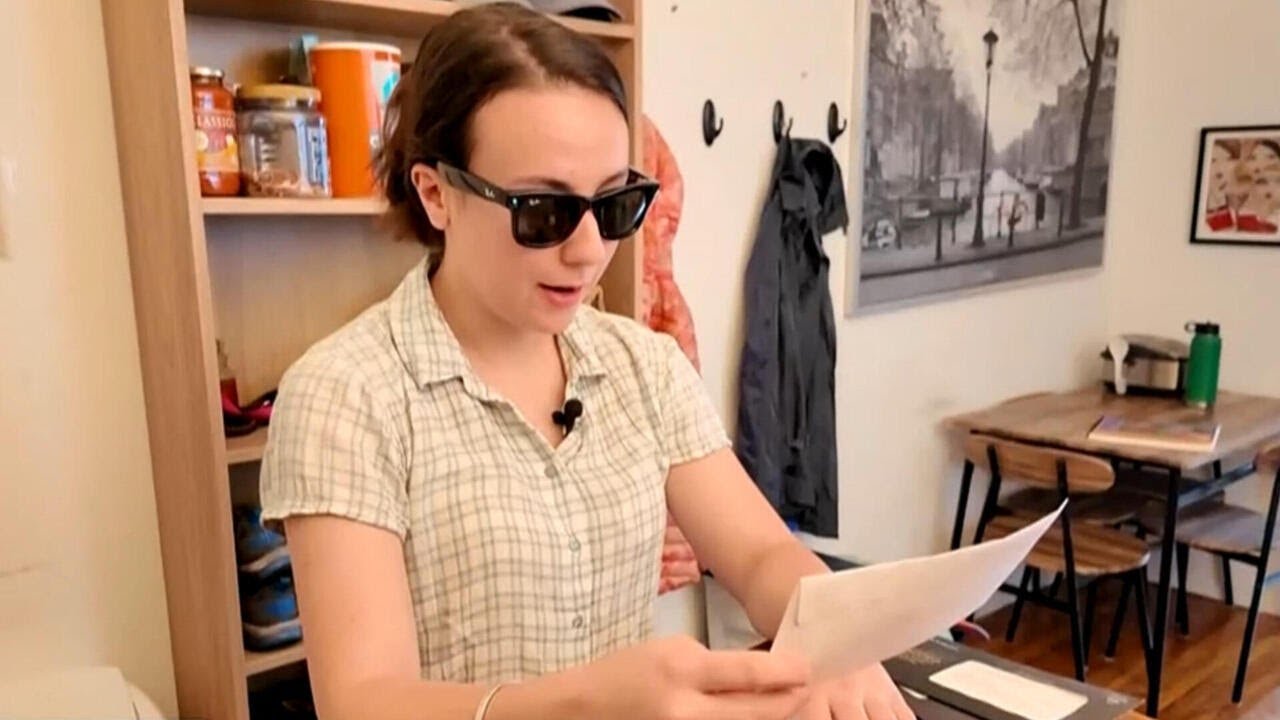AI-powered glasses, originally designed for convenience, are now helping visually impaired individuals like Emiline Lacra gain greater independence by enabling remote assistance through apps like Be My Eyes and aiding with everyday tasks such as reading menus and navigating public transport. Despite some technical limitations, ongoing improvements and new versions with enhanced features are making these glasses a valuable tool in expanding accessibility and freedom for the blind community.
AI-powered glasses, initially designed for convenience such as streaming live video and voice-activated internet searches, are now providing new hope and greater independence for visually impaired individuals. Emiline Lacra, an 18-year-old legally blind New Yorker who leads an active lifestyle including rock climbing, swimming, and running, demonstrates how these glasses assist her daily. For Emiline, being comfortable with technology is essential to maintaining her independence and continuing her active life.
Meta’s AI glasses, originally created to stream video and interact with the environment using artificial intelligence, have found a unique application within the blind community. Emiline uses the glasses in conjunction with the Be My Eyes app, which connects visually impaired users with volunteers worldwide. Through this app, volunteers like Bart Steinhorn can see through Emiline’s glasses and assist her with tasks such as sorting mail, reading documents, and navigating grocery stores, effectively acting as her eyes remotely.
The glasses also help Emiline with everyday activities like reading menus at restaurants and finding her way on public transportation. However, the technology is still a work in progress, with occasional glitches such as difficulty reading certain menu prices or running out of battery mid-use. Despite these challenges, the AI glasses significantly enhance Emiline’s ability to access information quickly and independently, making previously difficult tasks much more manageable.
Experts in the blind community, including Mark Ricabono, president of the National Federation of the Blind, acknowledge that while the glasses work well in some situations and less so in others, the technology is evolving and improving based on feedback from users. The glasses represent a major step forward in wearable technology that expands opportunities and access to information for blind individuals, contributing to their ongoing fight for independence.
Meta recently launched an updated version of the glasses with double the battery life, addressing one of the key limitations experienced by users like Emiline. Priced at $279, these glasses are part of a growing field of assistive technologies aimed at breaking down barriers for visually impaired people. While many blind individuals have already achieved independence, AI glasses offer an additional tool that can make daily life easier and more accessible, opening new possibilities for freedom and self-reliance.
